Reading time is around minutes.
Section II - Performance Tests,
Synthetic -
In this section of testing we cover the synthetics. These are tests that run a scripted sequence of internal APIs or that use another installed application to perform a series of scripted events. They are great in that they can provide reproducible results across various platforms. On the down side, synthetic tests can be fooled with driver tweaks and optimizations. In some cases it is necessary to rename the .exe file to something generic to discover if this is the case. In any event when this is needed (when a test shows a drastic difference in performance over the renamed exe) we will note this and show both results for comparison.
PCMark7 -
PCMark7 is the latest general performance test from FutureMark. As each generation of this benchmark has evolved and developed we have watched them add more and more realistic tests to this suite. With this generation we find more media tests, (audio and video transcoding) moving of large files, multiple web page rendering, and much more (the even added DX10 gaming). We use the Overall Performance and Common Usage suites in our testing.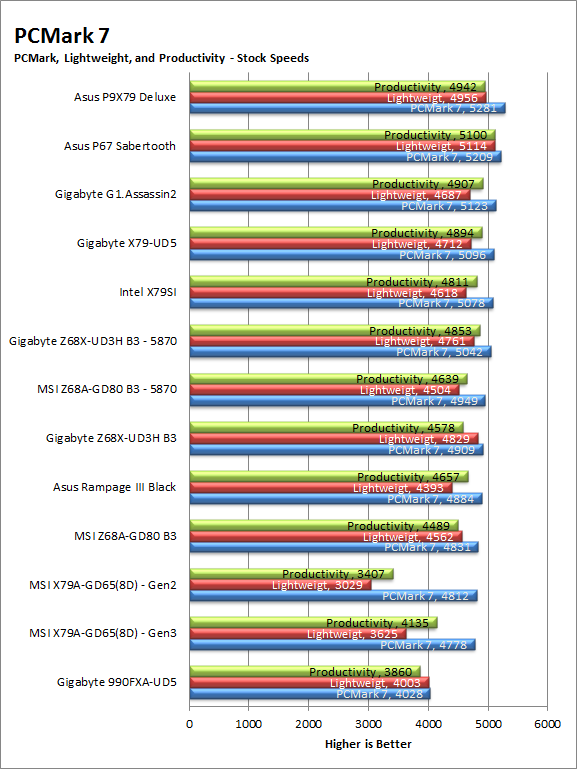
The MSI X79A-GD65(8D) did not do so well in our PCMark 7 testing at stock speeds it only managed to best the AMD based 990FXA-UD5. Even when overclocked to 4.691GHz it still did not do as well as it should have. The prime suspect here is data transfer from HDD to Memory to CPU and back. Each one tests out properly on its own, but when they have to work together there is something that is slowing it all down. We also ran both the Gen2 and Gen 3 slots for video (at stock speeds) on this test.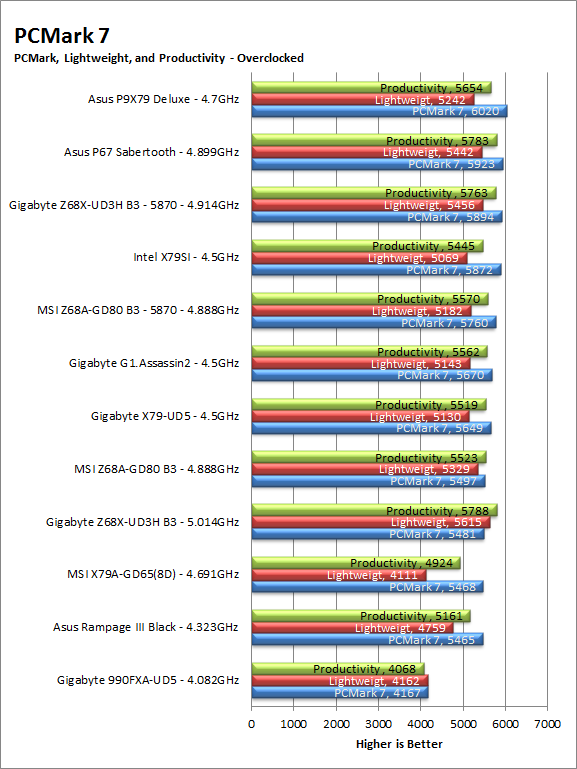
3DMark 11 -
3DMark 11 is the other Futuremark test that we run on our motherboards. This test simulates the typical tasks that a GPU (and system) would have to perform to provide you with a good gaming experience. It is based on the DX9, DX10 and DX11 engines but can only be installed on Windows Vista or later. The suite of tests covers DX9, DX10, and of course DX11 rendering; it also covers AI computations and physics. That’s right I said Physics the latest version of 3DMark uses a Havok physics engine. This removes the advantage that nVidia had with 3DMark Vantage. 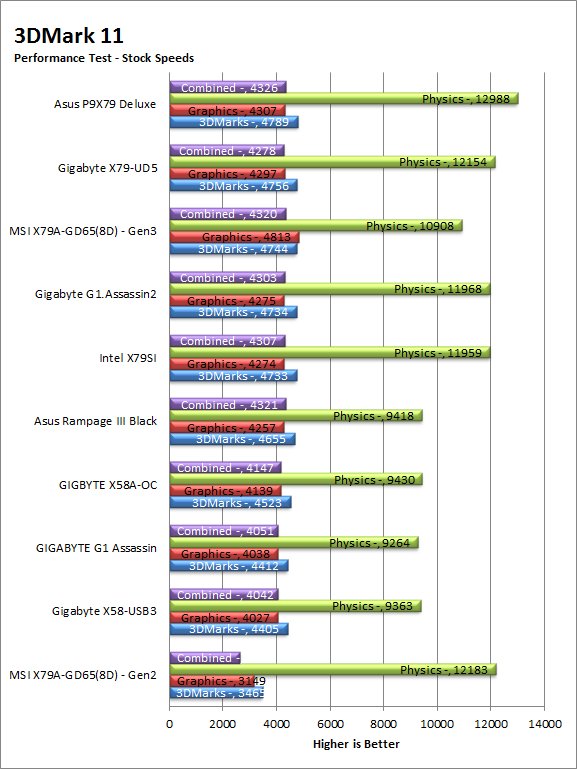
Here you can see just how drastic the difference in performance is when using the Gen2 slots. We were very surprised and disappointed about considering that Gen2 should not be that much slower and Gen 3 support was off in the BIOS. Surprisingly when overclocked the X79A-GD65(8D) pulled off a victory over the Asus P9X79 Deluxe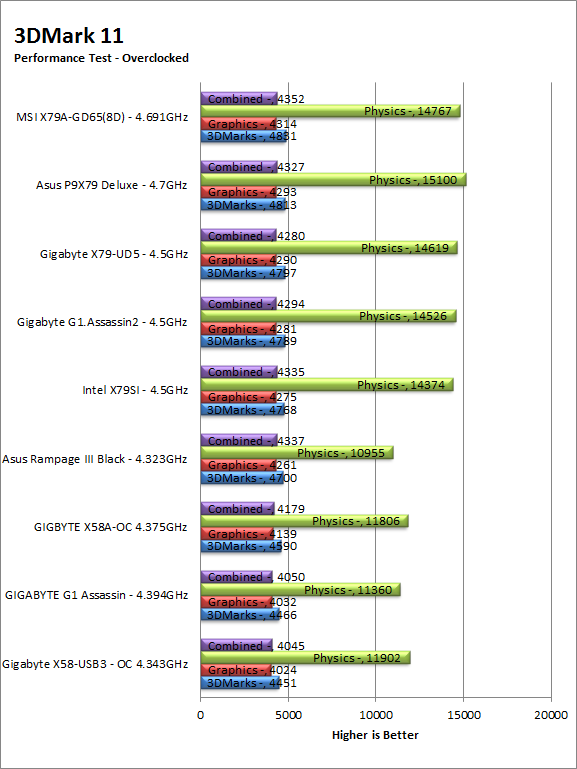
HyperPi 0.99b -
HyperPi is a front end application that allows you to easily run multiple instances of the SuperPi application. SuperPi, for those that are not familiar with it, is an application that measures the time it takes to calculate the number Pi out to as many as 32 million places. This calculation is then checked and run multiple times (up to 24 for a 32M run). This test stresses the CPU, Memory and HDD as data is handed off between the three. If there is a weak link, HyperPi will show it. For our testing we run the 32M test on as many cores (and threads) as the CPU has available. The slowest CPU time is then recorded. 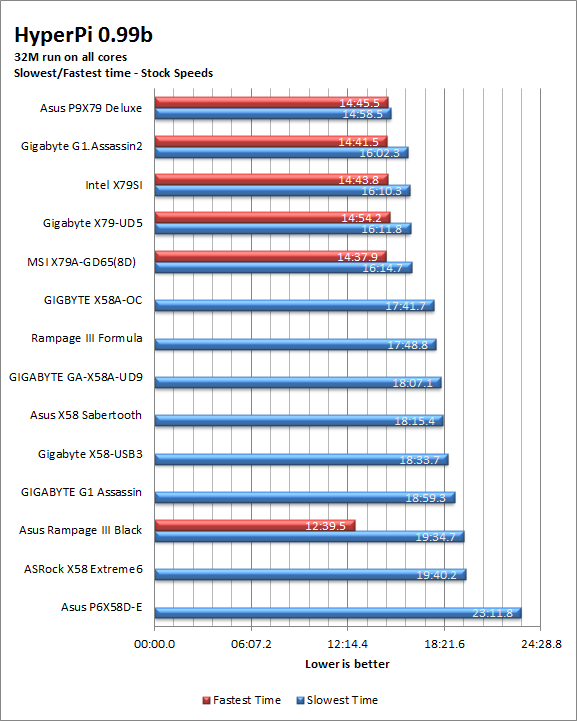
Here we see that HDD to mem to CPU issue again as the HyperPi times are not where they should be at stock or overclocked. We are hoping that this can be corrected with a BIOS update so there is still hope for the board.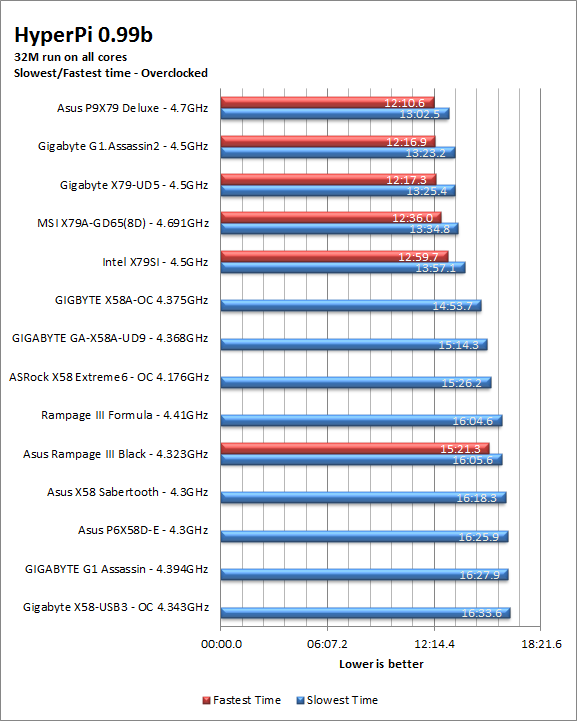
Cinebench R11.5 -
Cinebench R11.5 is the 11th release of Maxon’s rendering test. This test is based off of the Cinema 4D engine, which is one of the industry standard tools for digital animation. It is a powerful product with many different modules that can be “plugged” into it to increase its effectiveness. With Cinebench you get to see how your computer would do using this application. There are two tests; one tests the CPU’s ability to render an image across multiple cores or threads. The other tests your systems ability to handle OpenGL based rendering. 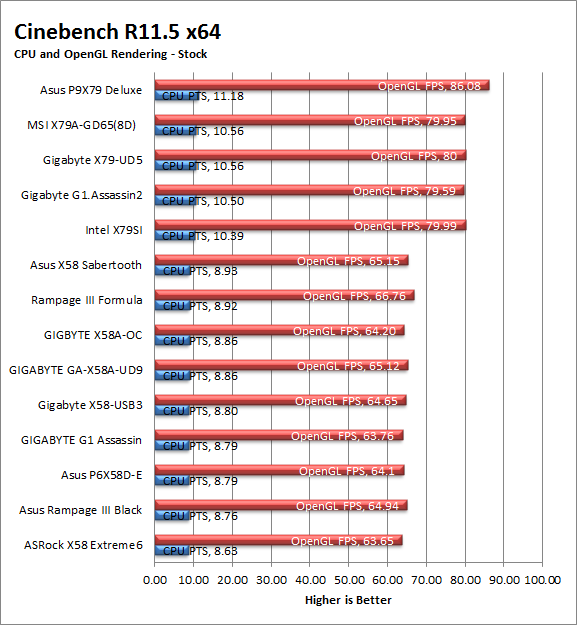
Interestingly enough in Cinebench things seem to drop back into line. Here we find the X79A-GD65(8D) right behind the Asus P9X79 Deluxe. This is a much better showing that our previous tests would have indicated.
